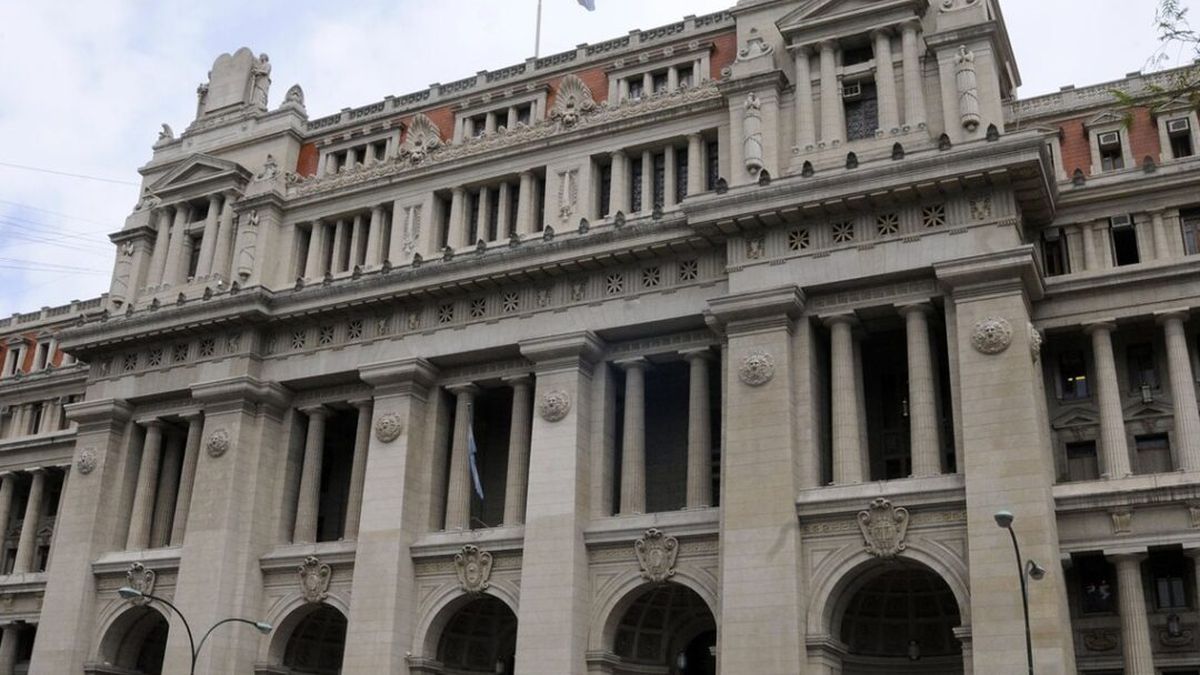Communiqué and agreements that limit the scope of what the highest Court ordered. Focus on detriment for those seeking access to justice and expectation with a change of majorities that retroactively submits to the Superior Court of Justice of Buenos Aires.
“It was a sea of tears.” This is how one of the attendees described the prevailing climate among the judges who participated in the reserved meeting of presidents of the National Courts of Appeals, representatives of the Public Prosecutor’s Office and unions, at the headquarters of the Association of Magistrates. The conclusion – which is also part of the future strategy to resist a forced transfer to the orbit of CABA – is that the ruling of the Supreme Court that empowered the Superior Court of Justice (TSJ) of Buenos Aires over national justice is a blow, mainly, to citizens who go to court. The reading has an internal political ingredient in the war with the highest Court, but also a practical one: creating one more instance of review – now with the TSJ filtering the extraordinary resources – inevitably delays the processes: longer labor trials, civil litigation extended even further, and the specter of statute of limitations due to the passage of time, in criminal matters. Nothing that helps the defendant.
The content you want to access is exclusive to subscribers.
Those present came with a question addressed to the Association of Magistrates that floated in the air: “Are they going to defend us or not?”. They feel a direct attack, this time, not from politics, but from the head of the Judiciary itself. Also, as Ámbito advanced, the strategy is based on the main weakness of the “Levinas” ruling: it was integrated with a majority that evaporated 24 hours later. That margin of action was considered. The Commercial Chamber announced that it was willing to hold a plenary session and reach an agreed upon position to support that its extraordinary resources should go directly to the Supreme Court. The Crime Chamber shared indignation, although they are not the ones who should raise extraordinary resources, and even the representative of the official defenders highlighted an underlying reality: They were going to start complaining about the deadlines and rain prescriptions for the extension of the processes as a favorable consequence for the interests of their clients.


Everyone waited for the formal response statement that was later published by the AMFJN that he presides. Andres Bassoafter agreeing with the 24 members of the board of directors. In the middle, and for a change, there were crossed bills that were foisted between the ruling party – the Bordó list – and the Celestes and Compromiso Judicial, which are the opposition within the union of magistrates due to the fierceness in the defense of national justice. The Bordós believe that, on top of that, it is unfair, because They had achieved success last January, when the Government of Javier Milei had tried the same, but due to a law of Congress and the issue had been shipwrecked in a draft.
“The one who loses is the litigant, because the ART must be celebrating,” said a magistrate who was looking at the labor court due to the extension of payments in trials. “You will never be able to collect a claim for damages,” they pointed out from the civil jurisdiction, as a deterrent effect for anyone who wanted to seek a response from the courts. “The victims are going to be harmed because the sentences that will not be carried out,” said someone from the national criminal courts. All this diagnosis made up the climate of unease that dominated the meeting, in which they looked at each other to find an answer that would allow for survival. The average citizen would be the main victim of an internal war where he would be far from obtaining what he came for and, therefore, confidence in justice would be further undermined.was the epilogue that also served to encourage oneself.
Just as I had anticipated Scopethe margin to disobey is slim. Therefore, limiting the scope of the provisions of the Court – with the majority of Horacio Rosatti, Ricardo Lorenzetti and the outgoing Juan Carlos Maqueda – is the path with the greatest chances of success. Nothing to do with the case that gave rise to the ruling – “Levinas”, coming from civil jurisdiction – nor with the other related orders that the Court issued with private beneficiaries. This includes the Correo Argentino case – of commercial jurisdiction – and a new review for the conviction for the “Chocobar” case, a criminal matter. Regarding these, there is no way to avoid the order of a superior and they will be destined for the TSJ. But that does not mean that now the judges meekly agree to submit to the Buenos Aires court as superior..
The strategy is appeal to creativity to limit as much as possible what the ruling projects and make it more of an exception than the rule. The expectation is that If a conflict arises again, when it escalates to the Supreme Court, the scenario of possible new majorities could modify the doctrine that had been paving this majority that no longer exists.. It is not a safe route, but it is the most probable. Consider a “criterion” that is not mandatory. In summary, establishing that what the ruling lacks is assured stability as a jurisprudential doctrine.
The rejection of the Association of Magistrates
In the afternoon, the AMFJN published the statement in which they ratified their “historical” position, but now faced with this ruling. They highlighted the “unanimity” in their rejection. They described the status of the City of Buenos Aires and lifted the gauntlet of what offended them in the ruling: “it is inappropriate to refer to the magistrates who exercise national powers in their field as merely transitory.” It was one of the sections that hurt the most of what the Court signed.
Supported by the opinion of Eduardo Casal who at the time had rejected the TSJ as reviewer of the national chambers and the dissent of Carlos Rosenkrantz, which were highlighted yesterday by Ámbito, they stressed that “There is no legal basis to attribute to the TSJ the power to review a sentence handed down by the National Chambers of Cassation and Appeals”. And that challenges to sentences of the national justice system is something that the National Code of Civil and Commercial Procedure provides for through extraordinary federal resources, so submitting them to a “local court”, “modifies the structure of the judiciary” defined by law. This means that “the Public Ministries are affected not only by the lack of compliance with the constitutional and functional safeguards coming from the respective organic laws sanctioned by Congress” – which differ in almost everything with the local structures for the MPF. “generating an unprecedented situation that leaves all case management in uncertainty with immediate impact on the people represented”. All of these litigants – some vulnerable – have tools that are not always provided for in the city, which “has severe and immediate implications” on rights and guarantees.
“National justice cannot be transferred to the City of Buenos Aires,” they conclude by emphasizing that this is the correct interpretation of the National Constitution. It is a war in chapters that will have its splinters throughout the January fair.
Source: Ambito
I am Pierce Boyd, a driven and ambitious professional working in the news industry. I have been writing for 24 Hours Worlds for over five years, specializing in sports section coverage. During my tenure at the publication, I have built an impressive portfolio of articles that has earned me a reputation as an experienced journalist and content creator.




